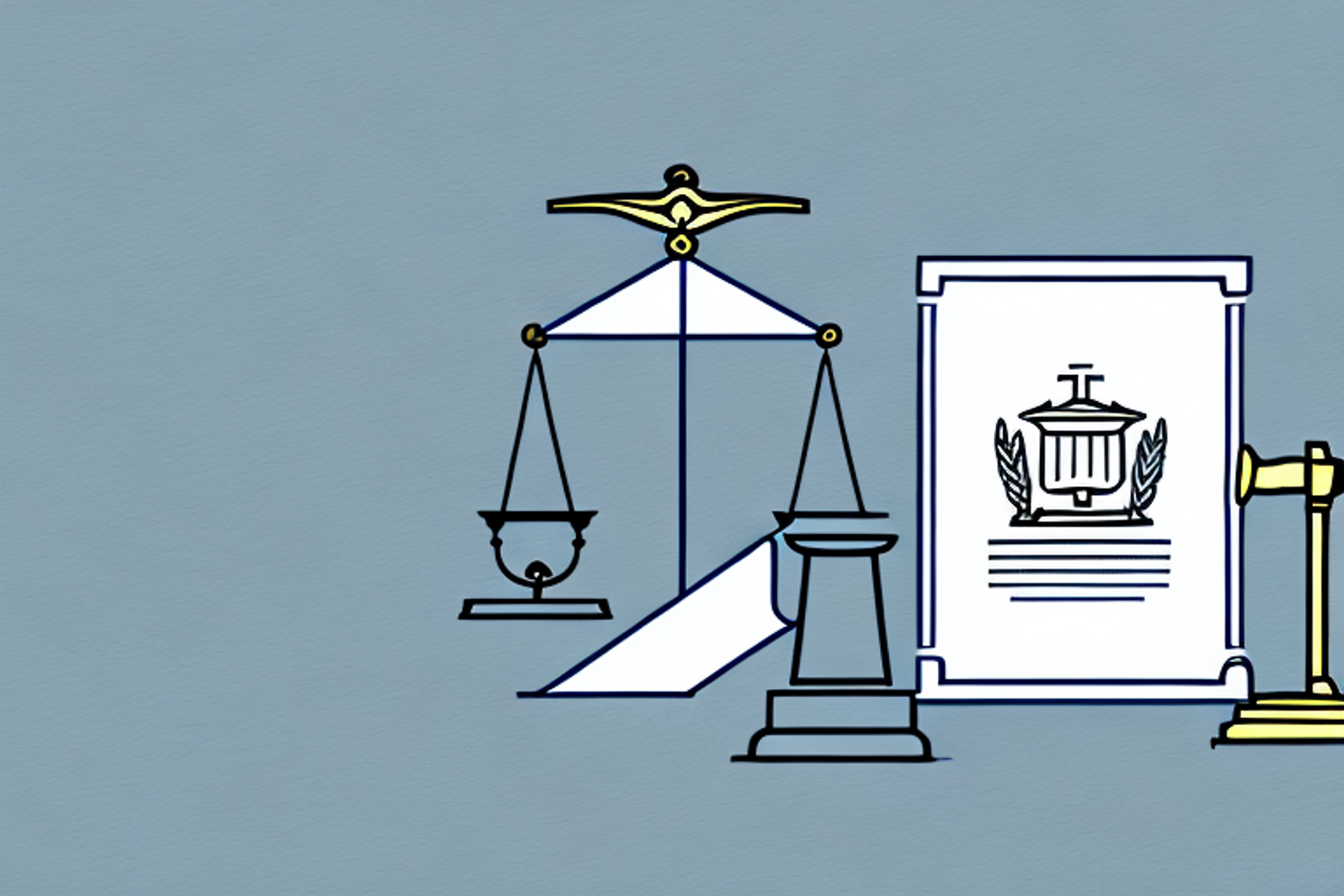A Guide to the Boston University School of Law Interview Process
If you're preparing for an interview at Boston University School of Law, this guide is a must-read.
Posted April 10, 2025

Table of Contents
Free Event

Featuring Mohammad M.
How I got into Stanford Law (Develop your 2025 Law School Game Plan)
Starting Monday, June 9
11:00 PM UTC · 60 minutes

Featuring Mohammad M.
If you are considering applying to the Boston University School of Law, then you must know that the interview process is a crucial part of the application procedure. It is the chance for the admissions committee to get to know you beyond your academic and professional achievements. You need to make sure that you do your best to present yourself in a positive and confident light to have a strong chance of being admitted. In this guide, we'll take an in-depth look at everything you need to know to prepare for and ace the BU Law interview process.
Introduction to the Boston University School of Law Interview Process
All prospective law students who apply to Boston University School of Law may be invited to attend an interview. The admissions interview is conducted by an individual member of the admissions committee, either in person or remotely via video conference. While it is not mandatory to attend the interview, it is highly recommended that you do so. This interview provides an opportunity to demonstrate your character, commitment, and skill set to the admissions committee. So, if you receive an invitation to interview, take it seriously!
During the interview, you will be asked a series of questions about your academic background, work experience, and personal interests. You may also be asked to discuss your reasons for pursuing a legal education and your career goals. It is important to prepare for the interview by researching the school and its programs, as well as practicing your responses to common interview questions.
After the interview, the admissions committee will review your application and interview performance to determine whether you are a good fit for the school. If you are accepted, you will receive an offer of admission and be invited to join the Boston University School of Law community. If you are not accepted, you may still have the opportunity to reapply in the future or consider other law schools that may be a better fit for your goals and interests.
Importance of Preparing for the Interview
Good preparation is essential to make a good impression during the interview. You are expected to have a thorough understanding of the law school and its programs, as well as the current issues in the legal field. Spend time researching the law school's website and social media pages to familiarize yourself with the program and its unique features. It's also important to practice responding to common interview questions in advance so that you can speak fluently and confidently during the actual interview.
In addition to researching the law school and practicing interview questions, it's also important to dress professionally and arrive early to the interview. Dressing professionally shows that you take the interview seriously and are respectful of the interviewer's time. Arriving early allows you to get settled and calm your nerves before the interview begins. Remember to bring copies of your resume and any other relevant documents, as well as a pen and notepad to take notes during the interview.
Understanding the Interview Format and Structure
The interview format at the Boston University School of Law typically lasts around 30 minutes. The interviewer may ask a variety of questions, including personal and academic experiences, interests, and future plans. Some interviews may be highly structured, with a set of specific questions that are asked of every interviewee. Others may be more open-ended and allow you to steer the conversation in a direction that highlights your strengths.
It is important to prepare for both types of interviews. For structured interviews, practice answering common questions and have specific examples ready to share. For open-ended interviews, think about your unique experiences and skills that you want to highlight and be prepared to guide the conversation in that direction. Remember to also research the school and program beforehand, so you can ask thoughtful questions and show your interest in attending.
What to Expect During the Interview
During the interview, the interviewer will be assessing various aspects of your personality, skills, and interests. They will be looking for qualities that make you an ideal candidate for their law program, such as strong communication skills, self-awareness, leadership, and teamwork. Pay attention to your body language, tone of voice, and presentation during the interview to show that you have what it takes to succeed in law school and beyond.
Additionally, the interviewer may ask you questions about your academic background, work experience, and extracurricular activities. They may also inquire about your motivation for pursuing a career in law and your long-term career goals. Be prepared to answer these questions with specific examples and demonstrate how your experiences have prepared you for a career in law.
It is also important to research the law program and the interviewer beforehand. This will show that you are genuinely interested in the program and have taken the time to learn about it. You can also prepare questions to ask the interviewer about the program, such as the curriculum, opportunities for internships, and career placement services.
Tips for Answering Commonly Asked Questions
The admissions committee may ask you a wide range of questions, from the specific details of your academic background to your reasons for pursuing a career in law. Some of the common questions that you might be asked include:
- Why do you want to attend BU Law?
- What do you think are your biggest strengths as a candidate?
- What are your short- and long-term career goals?
- What do you think sets you apart from other applicants?
Be prepared to answer these questions in a clear and concise manner, and use specific examples to support your response. Avoid vague or generic answers and be honest and authentic in your replies.
It's also important to do your research on the law school and the program you are applying to. This will help you tailor your answers to the specific strengths and values of the school. Additionally, practice your responses with a friend or family member to get feedback and improve your delivery. Remember, the interview is an opportunity for you to showcase your skills and personality, so be confident and stay positive throughout the process.
Dressing Appropriately for the BU Law Interview
Your appearance at the interview is your first chance to impress the admissions committee. Dressing professionally is essential to show that you take the interview seriously and are ready for the rigors of law school. It's best to opt for a business suit, dress, skirt, or pantsuit in a neutral color. Avoid flashy jewelry, heavy makeup, or strong perfumes that can be distracting. Don't forget to groom yourself, including your hair, nails, and facial hair to ensure a polished look.
In addition to dressing appropriately, it's important to also consider your body language during the interview. Sit up straight, make eye contact, and avoid fidgeting or slouching. These nonverbal cues can convey confidence and professionalism.
Another aspect to consider is your choice of footwear. Make sure your shoes are clean and polished, and opt for closed-toe shoes rather than sandals or flip-flops. Your shoes may not be the first thing the admissions committee notices, but they can still make a difference in your overall appearance.
Researching the Law School Prior to the Interview
It's essential to do your homework on the Boston University School of Law before the interview. Learn about the program, its location, faculty, student life, and extracurricular opportunities. Review the school's academic offerings, courses, and clinics, as well as its alumni network and career development resources. If you have any questions or concerns about the program or the application process, don't hesitate to ask the interviewer during the interview.
One important aspect to research before your law school interview is the school's culture and values. Look into the school's mission statement and values to get a sense of what the school prioritizes and how it aligns with your own goals and values. This can also help you prepare for questions about why you want to attend that particular law school.
Another helpful tip is to reach out to current students or alumni of the law school to get their perspective on the program. You can connect with them through social media or alumni networks, or even ask the admissions office if they can put you in touch with someone. Hearing about their experiences and insights can give you a better understanding of what to expect and help you prepare for the interview.
Making a Strong First Impression with Your Body Language
Your body language can say a lot about you, even before you've spoken your first word. It's important to appear confident, alert, and attentive throughout the interview. Make sure you maintain consistent eye contact with the interviewer, smile and nod when appropriate, and sit up straight with good posture. Use your hands to emphasize key points, but avoid fidgeting or distracting gestures that can make you appear nervous.
In addition to your body language, it's also important to dress appropriately for the interview. Your attire should be professional and polished, reflecting the company culture and the position you're applying for. Make sure your clothes are clean, ironed, and fit well. Avoid wearing anything too flashy or distracting, such as bold patterns or excessive jewelry. Remember, your appearance is a reflection of your professionalism and attention to detail.
Following Up After the Interview with Thank You Notes
After the interview, it's essential to send a thank-you note to the interviewer to show your appreciation for the time and attention they gave you. This note can be sent via email or regular mail but should be done within 24 hours of the interview. In your note, reference key topics that were discussed during the interview, and highlight specific aspects of the law school that you found particularly appealing. Use this opportunity to reiterate your interest in the program and your excitement about the prospect of attending BU Law.
Advice from BU Law Alumni on Navigating the Interview Process
Finally, if you want to get some insider tips on how to ace the Boston University School of Law interview process, consider seeking advice from alumni or current students. They can provide invaluable insights into their interview experience, as well as helpful recommendations on how to prepare for the process. You can reach out to them via law school's social media channels, alumni networks, or professional associations related to the legal field.
By following these tips, you will be well prepared to successfully navigate the interview process at Boston University School of Law. Remember to be confident, authentic, and well-informed, and you'll be sure to make a positive impression on the admissions committee. Good luck!











